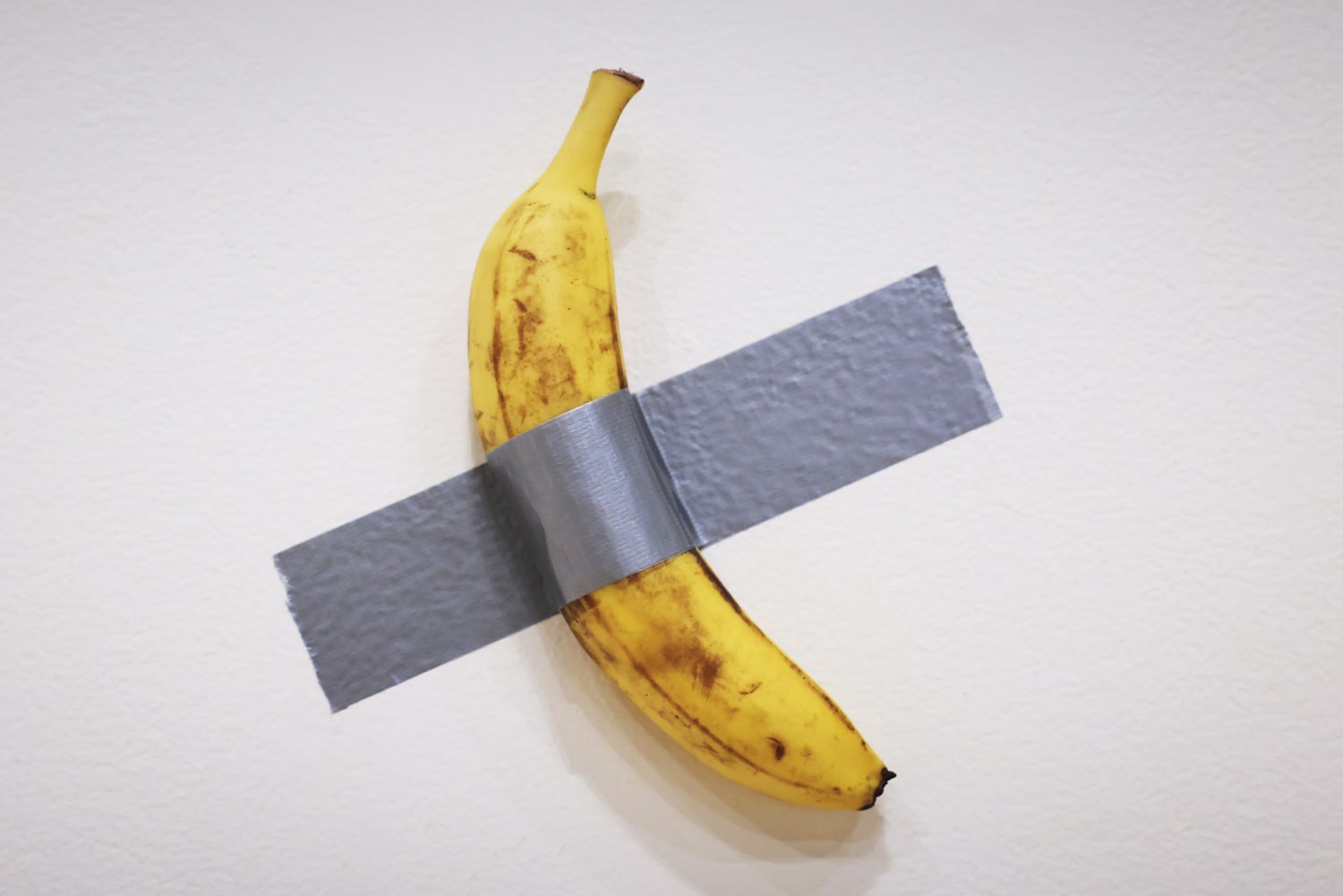A banana duct-taped to a white wall — or an acclaimed piece of art, depending how you look at it — sold at a Sotheby’s auction for $6.24 million Wednesday.
Maurizio Cattelan’s “Comedian” is simply a banana stuck to the wall with a strip of silver duct tape exactly 160 centimeters from the floor.
The artwork debuted at Art Basel Miami Beach in December 2019 and was initially estimated to sell for $1.5 million, according to Sotheby’s.
Art Basel quickly had to take the banana off the wall because of the crowds it drew, as it was prompting concern for the other featured artworks, art critic Nancy Durrant said in a Sotheby’s video about the piece of art.
It was the first art fair Cattelan was included in for 15 years, and it was the “announcement as a new original work by Maurizio Cattelan that captured the world’s attention immediately,” said David Galperin, Sotheby’s head of contemporary art for the Americas.
At one point, someone even took the banana off the wall and ate it.
For those that don’t know, this is one popular way of laundering money.
The other is real estate (which is how Trump made his comeback from early business failures).
You’re not paying for the original banana (well, you are, but you’ll have to replace it with a banana of your own sourcing every few days), and presumably the duct tape is ordinary as well, and there’s no special secret trick to correctly arranging it, so anyone reading this could perfectly recreate the artwork at home. You’re paying for the receipt certifying you to be the one person who paid for the concept. In other words, it’s like a NFT, only more ecologically sound.
Ethereum, the blockchain that the vast majority of NFTs are based on, switched to proof-of-stake over two years ago. It doesn’t use significant amounts of energy any more. So there isn’t even the “more ecologically sound” distinction here.
Still an NFT though, a insignificant, worthless bit of code pointing to a “thing” you “own”
Yes, so? All I was disputing was the issue of whether they’re “ecologically sound.” They’re fine now, they don’t consume massive amounts of energy. Use them or ignore them as you wish.
There’s still the cost associated with having your transaction stored forever on the blockchain across millions(?) of devices, but it’s only a few dozen bytes so the impact isn’t much.
Indeed. And there’s a future update for Ethereum being worked on to implement a “state expiry” system, which means data wouldn’t be stored forever unless you actually paid for it to be. I’ve been quite impressed with Ethereum’s continued development over the years, in contrast to Bitcoin which basically ossified.
It says at the end of the article someone took the original banana off the wall and ate it.
do you ever think about how the original paint that Da Vinci used to paint the Last Supper faded away hundreds of years ago?
Saved you a click: This news article was indeed from Nov 20, 2024
At this point the money laundering couldn’t be more blatant…
How much could one banana cost, Michael? 6 million dollars?
Great example that shows that some people clearly just have too much money.






